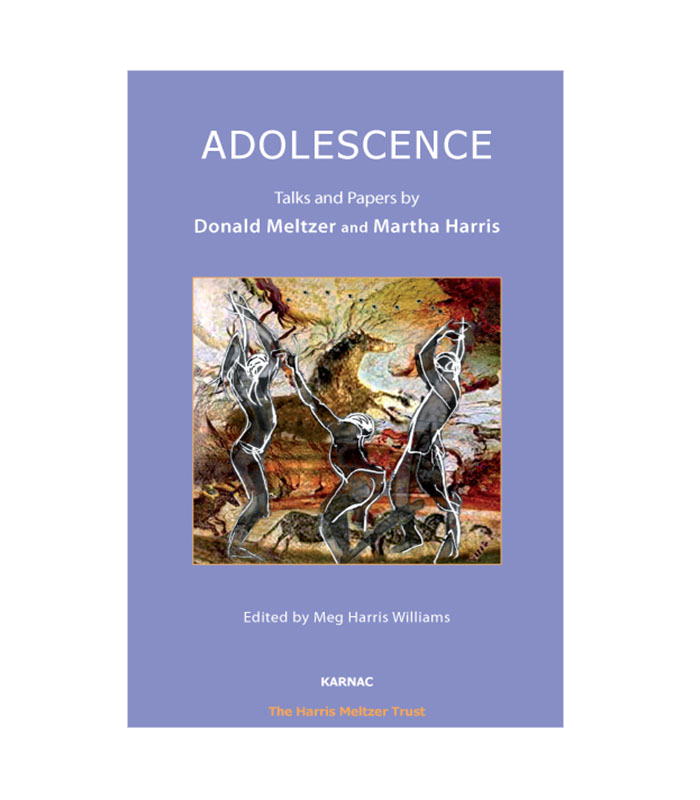Contents
Foreword by Jonathan Bradley
1. Your Teenager
Martha Harris (1969)
2. Identification and socialization in adolescence
Donald Meltzer (1967)
3. Adolescent psychoanalytical theory
Donald Meltzer (1973)
4. Emotional problems in adolescence: an adolescent girl
Martha Harris (1973)
5. The psychopathology of adolescence
Donald Meltzer (1973)
6. Adolescent sexuality
Martha Harris (1969)
7. Infantile elements and adult strivings inadolescent sexuality
Martha Harris (1976)
8. The paranoid-schizoid and depressive positions
Donald Meltzer (1975)
9. Depression and the depressive position in an adolescent boy
Martha Harris (1965, 1975)
10. From puberty to adolescence
Donald Meltzer (1975)
11. Juan: a constant disappointment
Jesús Sánchez de Vega and Donald Meltzer (1998)
12. Elsa: fear of the adolescent community
Nouhad Dow and Donald Meltzer (1998)
13. An adolescent voyeur
Donald Meltzer (1997)
14. The claustrum and adolescence
Donald Meltzer (1992)
15. A theory of sexual perversion
Donald Meltzer (1974)
16. Narcissism and violence in adolescents
Donald Meltzer (1989)
17. Adolescence: after the hurricane
Donald Meltzer (c. 2002)
References
Index
3 reviews for Adolescence: Talks and Papers by Donald Meltzer and Martha Harris
You must be logged in to post a review.




Kenneth Sanders, Fellow of the British Psychoanalytical Society –
‘This newly collected volume of the thought and work of Donald Meltzer and Martha Harris on adolescence is a potent witness to the devotion and enthusiasm with which they pursued their love of the psychoanalytic method and its sympathetic use at this most volatile age. The writing sparkles with wit and vigour and it is a great pleasure to hear again two voices which together express profound scholarship and virtuosic intuition.’
Margot Waddell, psychoanalyst and consultant child psychotherapist –
‘The distinct, yet also conjoined, charisma of Martha Harris and Donald Meltzer sings through these pages. When these papers, lectures and exchanges were written, adolescent life was very different from the contemporary picture. Yet the underlying truths about the nature of human development remain. The pages are vividly evocative of the “condition” of being adolescent. We encounter here the wisdom and essence of the personal and clinical experience that so impressively underpins current practice.’
Ellie Roberts, consultant child psychotherapist –
‘Meltzer referred to this stage of life as the “great combine harvester of adolescence”. in essence: all have to go through it; some find it hard to emerge from it. Theory and clinical material bring alive the political and ethical states of mind of adolescents as they re-evaluate their child knowledge and understanding. The tension builds through the book, leading from imaginative descriptions of ordinary pubertal states of mind to the destructiveness of perversity. The case discussions in the book provide a master class on technique and clinical understanding.’